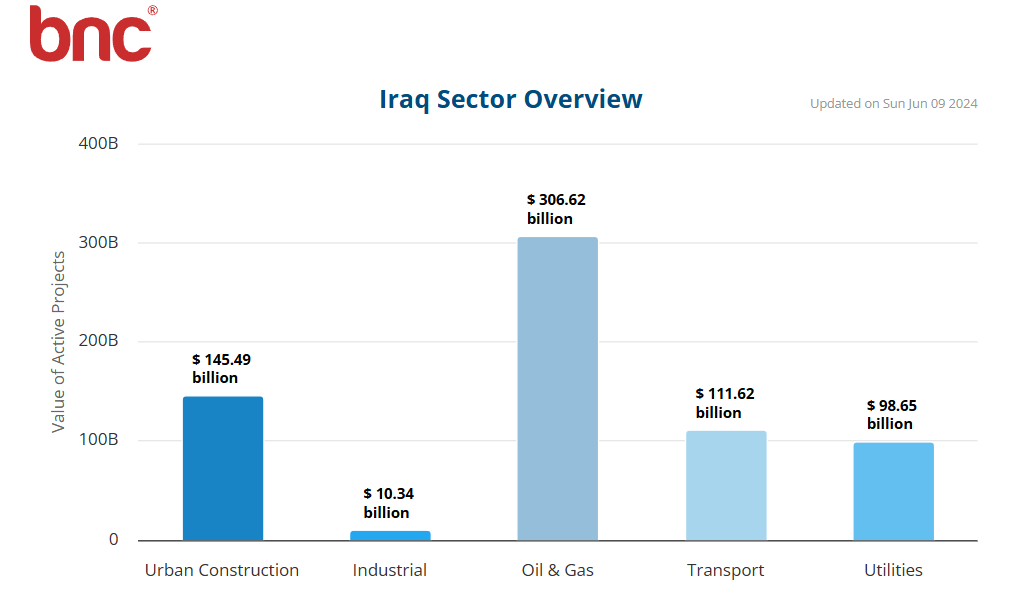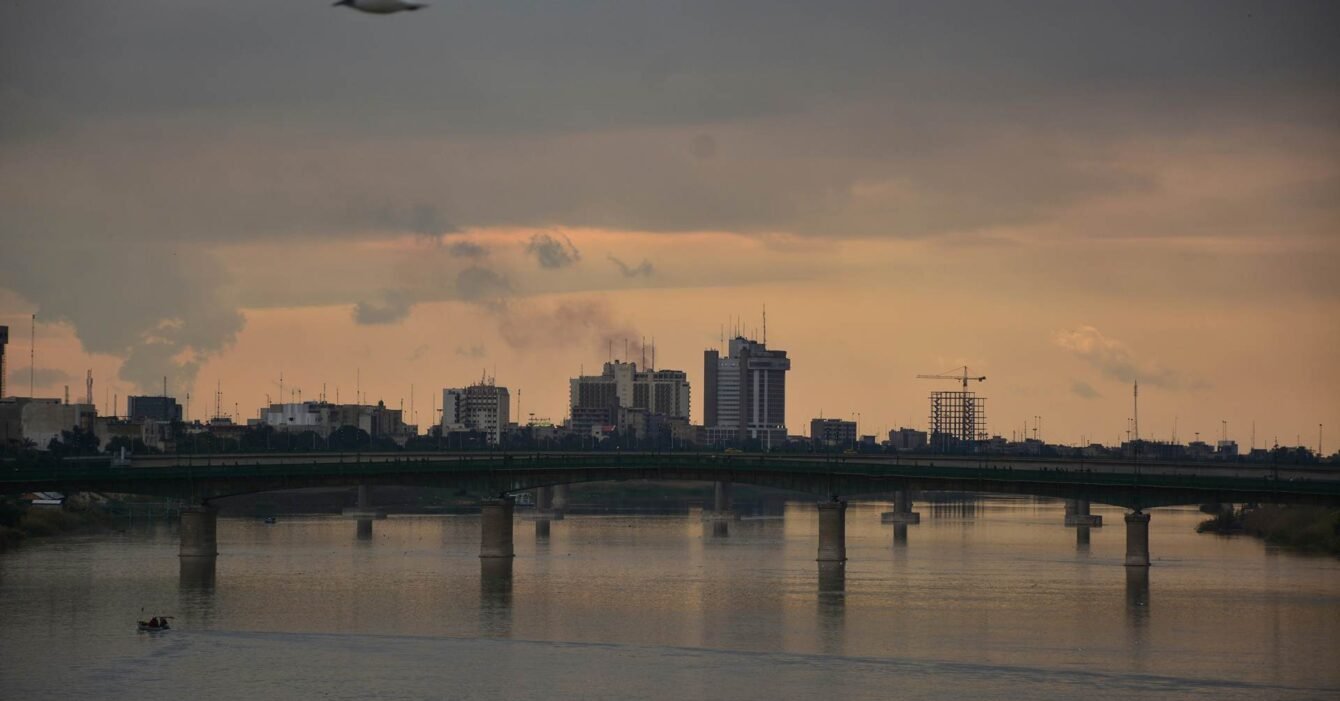Challenges and Opportunities in Iraq’s Construction Sector
The construction sector in Iraq is currently experiencing a pivotal phase, marked by substantial investments and a surge in new projects. As of June 2024, the BNC Tracker Database highlights 603 active construction projects in Iraq, valued at an impressive USD 577.75 billion. This diverse portfolio spans sectors such as urban construction, industrial development, oil and gas, transport, and utilities, reflecting Iraq’s commitment to rebuilding and expanding its infrastructure after years of conflict and economic setbacks. However, our team at Iraq Construction Consulting has identified several challenges alongside these opportunities that need to be addressed to sustain growth and development.

Key Challenges
- Security Concerns: Despite improvements, security remains a major concern in Iraq. The potential for instability can deter foreign investments and delay project timelines, making it critical for stakeholders to implement robust security measures.
- Regulatory and Bureaucratic Hurdles: Navigating the complex regulatory landscape in Iraq can be daunting. Bureaucratic delays and issues with transparency can impede progress, making it essential for companies to have a deep understanding of local laws and engage in transparent practices.
- Infrastructure Deficiencies: While significant investments are being made, existing infrastructure in many areas is still underdeveloped. This can create logistical challenges, impacting the efficiency of construction operations and the timely delivery of materials and services.
- Skilled Labor Shortage: The construction boom has led to a high demand for skilled labor. However, there is a shortage of adequately trained workers, which can affect the quality and speed of project completion. Investing in local training programs and bringing in international expertise can mitigate this issue.
- Financial Constraints: Despite the influx of capital, securing funding remains a challenge for some projects, particularly those that do not directly link to the lucrative oil and gas sector. Innovative financing solutions and public-private partnerships can help bridge this gap.
Opportunities for Growth
- Government Initiatives: The Iraqi government has launched several initiatives aimed at revitalizing infrastructure and boosting economic growth. New transportation, energy, and oil and gas projects are at the forefront, providing numerous opportunities for companies specializing in these areas.
- Rising Oil Prices: The increase in oil prices and production has improved Iraq’s fiscal position, allowing for greater investment in construction projects. This positive economic outlook presents a ripe opportunity for companies to expand their operations in Iraq.
- International Collaborations: Joint ventures and strategic alliances with local firms can enhance market entry and project execution. These collaborations can leverage local expertise and resources while mitigating risks associated with unfamiliar markets.
- Technological Advancements: Embracing new technologies such as Building Information Modeling (BIM), advanced project management software, and sustainable construction practices can enhance efficiency and reduce costs. Companies that innovate are likely to gain a competitive edge.
- Diverse Project Portfolio: The wide range of projects spanning urban construction, industrial development, transport, and utilities means there are opportunities for various sectors. Companies can diversify their portfolios and tap into different market segments to maximize their growth potential.
Conclusion
While the Iraq construction sector presents significant opportunities, it is not without its challenges. Addressing security concerns, regulatory hurdles, infrastructure deficiencies, labor shortages, and financial constraints is crucial for sustainable growth. Companies that navigate these challenges successfully, leveraging insights from Iraq Construction Consulting, can play a pivotal role in the country’s rebuilding efforts and capitalize on the burgeoning opportunities in this dynamic market.

